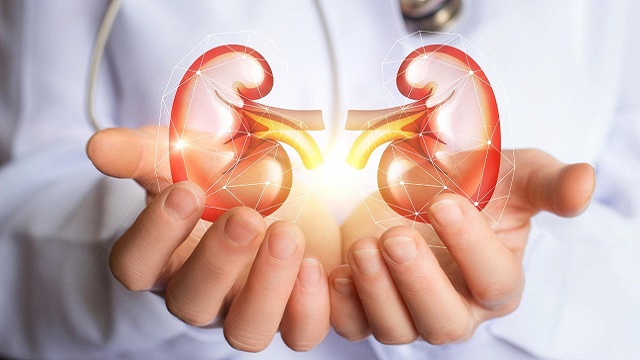World Kidney Day: Types of kidney stones and treatment
With an unhealthy lifestyle, your kidney might have to suffer painful results such as formation of stones in the organ
Kidney is one the precious organs in the body present in the lower abdomen. It’s work as a filter for the body as it removes waste and extra water from the blood in form of urine and help keep the chemicals (such as sodium, potassium, and calcium) balanced in the body. However, with an unhealthy lifestyle, your kidney might have to suffer painful results such as formation of stones in the organ.
Kidney stones are basically hard deposits of minerals and salts that forms inside your kidneys. There are many causes for this condition to appear, such as unhealthy diet, excessive body weight, some medical condition, certain supplements, etc.
These stones don’t only form in the main bean shaped organ, but can affect any part of your urinary tract- from kidneys to your bladder. These forms when the urine becomes concentrated, allowing minerals to crystallize and stick together.
Once formed, passing them naturally can be quite painful. But, if detected early, the stones cannot cause any permanent damage. When the stone is very tiny, one might not even need medication and only drinking lots of water will help it pass through. In other hand, if stones become lodged in the urinary tract, and if associated with urinary infection, surgery might be needed.
Symptoms
It is important to visit a doctor if you experience any sign of kidney stones in your body. Although some kidney stones do not even show up any sign of it until it expands to a bigger problem, here are some common symptoms that may occur when the stones move in the kidney or create trouble in the ureters. In such cases you may experience:
- Strong and sharp pain in the side and back, below the ribs
- Pain that radiates to the lower abdomen and groin
- Pain or burning sensation while urinating
- Pain may come in waves and fluctuates in intensity
Some other symptoms may include:
- The colour of the urine turning pink, red, or brown.
- foul-smelling in urine.
- Need to urinate more often than usual or urinating in small amounts.
- Nausea and vomiting
- In case of infection, fever and chills may also occur.
Considering where the stone moves to, the pain caused by it may change in place or intensity.
Causes
There is no single cause for a kidney stone, which is why it is hard to pin point on one reason. However, there are a few things that have often been seen resulting into it. Which is why taking care of those things can reduce the chances of getting kidney stones.
Urine contains more crystal-forming substances — such as calcium, oxalate and uric acid. At the same time, your urine may lack substances that prevent crystals from sticking together, creating an ideal environment for kidney stones to form.
Types of Kidney Stones
Different types of kidney stones have different causes. Knowing the types will help understand the healthy habits that are needed in order to prevent the organ from getting damaged.
Calcium Stones
These are the most common type of kidney stones, formed by the formation of calcium oxalate. Oxalate is a substance made daily by your liver or absorbed from your diet. These are derived from certain fruits, and vegetables, as well as nuts and chocolate.
Dietary factors, high doses of vitamin D, intestinal bypass surgery and several metabolic disorders are some of the risk factors that can increase the concentration of calcium or oxalate in urine.
Calcium stones could also occur in the form of calcium phosphate. This type of stone can mostly be seen in metabolic conditions, such as renal tubular acidosis. If you are exposed to certain medicines, used to treat migraines or seizures, you are prone to this type of kidney stone.
Struvite stones
Struvite stones usually form in case of an urinary tract infection. These stones can grow quickly and become quite large. Symptoms may or may not occur at this case.
Uric acid stones
Uric acid stones usually forms in people who lose too much fluid because of chronic diarrhea or malabsorption. High protein diet, and diabetes or metabolic syndrome can also boost the formation of this condition. Certain genetic factors are also a risk factor to uric acid stones.
Cystine stones
These stones form in people with a hereditary disorder called cystinuria that causes the kidneys to excrete too much of a specific amino acid.
Treatment
If diagnosed with any kind of kidney stones, a doctor may prescribe certain medication or vaccination to dilute the crystals and let it pass through urine. However, this is only possible if the stone is too small or in the kidney. On other hand, bladder stones required surgery.
In case of small stones with minimal symptoms, you can use the following methods to cure your condition:
Drinking water: Drinking a lot of water can help keep your urine diluted and may prevent more stones from forming. But, do not hurry up and pressurize your kidney. Listen to your doctor about the intake of water.
Pain relievers: Even a small stone can cause discomfort while passing. Hence, ask your doctor to recommend you some pain relievers such as ibuprofen to relieve mild pain.
Medical therapy: Your doctor may put you on some medication to help pass the kidney stone. Known as an alpha blocker, this type of medication relaxes the muscles in your ureter. As a result, it helps the stone pass more quickly and with less pain.
Meanwhile in case of Large Kidney stones, doctors will advise you to go through certain process such as sound waves, to break the stones into small pieces to help it pass or advice surgery or scope.




 Ms Kalinga
Ms Kalinga